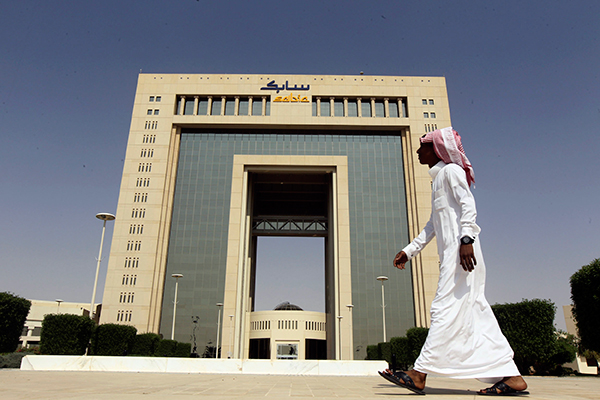 |
|
A man walks past the headquarters of SABIC in Riyadh, Saudi Arabia. The company said it will continue to invest in China, especially in research and development. [Photo/Agencies] |
CEO says the country remains firm's top market as demand for products keeps rising
SABIC, the Middle East's largest petrochemical company, said on Wednesday that it will continue to invest in China despite the economic slowdown in the world's second-largest economy.
"There are some signs showing the Chinese economy is slowing down, but it is still our fastest-growing market, so we will keep our investment here, especially in research and development," Yousef Abdullah Al-Benyan, vice-chairman and chief executive officer of the Saudi company, told China Daily.
He said while some industries are suffering as a result of overcapacity in the past few years, China's petrochemical industry, on the other hand, plays a key role in driving the global market.
"We have seen growing demand for petrochemical products from many sectors including construction, healthcare, electronics and packaging," he said, adding that innovation and low efficiency are bigger issues for the industry than overcapacity.
China's petrochemical sector will grow by 8.8 percent this year, according to estimates by the China Petroleum and Chemical Industry Association, much higher than the global rate of just 3 percent.
To promote innovation in the sector, SABIC has signed a cooperation agreement with Dalian Institute of Chemical Physics, a research institute under the Chinese Academy of Sciences and China National Petroleum Corp, for the research of catalyst and development of conversion of methane into olefins, aromatics and hydrogen.
The technology will enable chemical products to be made from natural gas in a more efficient and greener way.
In 2015, Brent crude prices plunged to the lowest level since 2004. Experts said that oil serves as a feedstock and price setter for many chemicals, plastics and fibers and the decline in oil prices has also led to lower petrochemical prices and higher petrochemical derivative demand.
